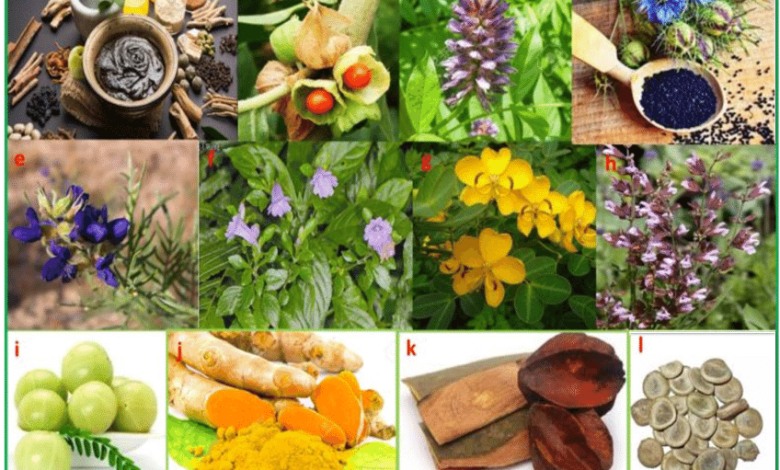The Fragrant Herb That Could Protect You from Cancer and Heart Disease—Experts Are Amazed!

In the world of natural health, some remedies come and go—trends rise, fade, and are quickly forgotten. But every now and then, one simple, humble herb manages to capture the attention of researchers, nutritionists, doctors, and wellness enthusiasts worldwide. This time, the spotlight falls on rosemary, the fragrant, evergreen herb that has flavored our meals for centuries but is now gaining recognition for something far more remarkable: its potential ability to protect the body from cancer and cardiovascular disease.
That’s right—your kitchen spice rack may be hiding one of the most powerful disease-fighting plants nature has to offer. As scientific studies continue to uncover rosemary’s impressive bioactive compounds, experts are increasingly amazed by how profoundly this aromatic herb supports long-term health.
So, what makes rosemary so exceptional? Why are researchers so intrigued? And most importantly—how can you harness its healing potential in your daily life?
The science behind rosemary’s disease-fighting power, the precise compounds responsible for its benefits, and practical ways you can incorporate it into your diet to fortify your body naturally.
What Makes Rosemary a Disease-Fighting Powerhouse?
Rosemary (Rosmarinus officinalis), a staple in Mediterranean cuisine, has long been used not just for flavor but also as a medicinal herb. Traditional healers praised it for boosting memory, improving digestion, strengthening circulation, and relieving inflammation.
Today’s scientific research confirms what ancient cultures already suspected: rosemary is packed with bioactive compounds that offer extraordinary protection at the cellular level.
The most important include:
1. Rosmarinic Acid
A potent antioxidant and anti-inflammatory agent, rosmarinic acid helps protect cells from oxidative stress—a key driver of chronic diseases, including cancer and heart disease.
2. Carnosic Acid and Carnosol
These two diterpenes are the real superstars. Studies show they have:
- Anti-cancer properties
- Lipid-lowering effects
- Neuroprotective benefits
- Anti-inflammatory actions
Carnosic acid, in particular, is one of the most powerful plant-based antioxidants ever discovered.
3. Essential Oils (Cineole, Camphor, Pinene)
These aromatic oils give rosemary its signature fragrance and provide antimicrobial, anti-inflammatory, and immune-enhancing benefits.
With this potent chemical profile, rosemary acts like a natural shield protecting your body from the effects of stress, inflammation, oxidative damage, and disease.
How Rosemary May Help Prevent Cancer
Cancer remains one of the most challenging diseases of our time. While no single herb can cure or completely prevent cancer, rosemary shows promising potential in reducing cancer risk by protecting the body at multiple levels.
Here’s what science reveals:
1. Stops Cancer Cell Growth
Laboratory studies have shown that compounds in rosemary—especially carnosol and carnosic acid—can:
- Slow cancer cell proliferation
- Trigger apoptosis (natural cancer cell death)
- Disrupt cancer cell signaling
These effects have been observed in various cancer cell lines, including:
- Breast cancer
- Colon cancer
- Prostate cancer
- Leukemia
2. Anti-Inflammatory Actions
Chronic inflammation contributes to cancer development by damaging DNA and fueling abnormal cell growth. Rosemary’s anti-inflammatory components combat this underlying cause.
3. Neutralizes Free Radicals
Oxidative stress is one of the biggest drivers of cancer. Rosemary’s high concentration of antioxidants neutralizes harmful free radicals before they can damage DNA or cellular structures.
4. Enhances Detoxification
Studies suggest rosemary helps liver enzymes break down carcinogens more effectively, reducing their ability to cause harm.
5. Slows Tumor Formation
Animal studies show that supplementing with rosemary extract can reduce tumor size and frequency—especially in breast and skin cancers.
While research is ongoing and more human studies are needed, these findings are compelling enough that many scientists are calling rosemary a promising natural ally in cancer prevention.
How Rosemary Protects the Heart and Cardiovascular System
Heart disease is still the leading cause of death worldwide. Inflammation, oxidative stress, high cholesterol, and poor blood circulation are some of the primary contributors.
Rosemary’s compounds help counter these risk factors in multiple ways:
1. Reduces Oxidative Stress
Carnosic acid and rosmarinic acid act as strong antioxidants that protect blood vessels from oxidative damage, a major driver of plaque buildup.
2. Lowers LDL (Bad Cholesterol)
Research shows that rosemary extract may modestly reduce LDL levels while improving HDL (good cholesterol), contributing to better heart health.
3. Improves Blood Circulation
Rosemary naturally stimulates blood flow, helping to:
- Prevent clot formation
- Support healthy blood pressure
- Reduce strain on the heart
4. Anti-Inflammatory Effects Protect Arteries
By reducing inflammation in blood vessel linings, rosemary helps prevent atherosclerosis—the narrowing and hardening of arteries.
5. Supports Heart Muscle Function
Certain rosemary components may help strengthen cardiac tissue, especially in people experiencing fatigue or poor circulation.
Together, these benefits make rosemary an incredibly heart-friendly herb that supports cardiovascular wellness from multiple angles.
Additional Health Benefits of Rosemary That Experts Love
Beyond cancer prevention and heart protection, rosemary offers a long list of other wellness advantages.
1. Boosts Memory and Cognitive Function
Rosemary has earned a reputation as the “brain herb.”
Studies show its aroma and compounds may:
- Improve memory
- Enhance focus
- Support long-term brain health
- Potentially reduce risk of neurodegenerative diseases like Alzheimer’s
Even inhaling rosemary essential oil can improve mental clarity!
2. Fights Inflammation
Because chronic inflammation underlies many diseases—including arthritis, diabetes, obesity, and autoimmune disorders—rosemary’s anti-inflammatory effects can support overall health.
3. Improves Digestion
Traditional herbalists used rosemary to relieve:
- Bloating
- Gas
- Indigestion
- Slow digestion
- Liver sluggishness
Rosemary stimulates bile flow, which helps break down fats more efficiently.
4. Strengthens the Immune System
Its antimicrobial and antioxidant properties fortify the body against infections and harmful microorganisms.
5. Supports Healthy Hair and Skin
You’ve probably seen “rosemary oil” in hair growth products. Studies indicate it may stimulate hair follicles, fight dandruff, and improve scalp health.
For skin, its antioxidants help protect against aging and free-radical damage.
How to Use Rosemary to Maximize Its Health Benefits
You don’t need special supplements or expensive tinctures to benefit from rosemary—although those are available too. You can easily add it to your diet in simple, delicious ways.
Here are the best methods:
1. Fresh Rosemary in Cooking
Add it to:
- Chicken, beef, fish, lamb
- Roasted vegetables
- Soups and stews
- Marinades
- Potato dishes
- Bread and focaccia
The heat activates rosemary’s aromatic oils, making your meals healthier AND tastier.
2. Rosemary Tea
A soothing drink that supports digestion, mental clarity, and heart health.
How to make it:
- Steep 1–2 teaspoons of fresh or dried rosemary in hot water for 10 minutes.
- Add honey or lemon if desired.
Drink it 3–4 times per week for maximum benefit.
3. Rosemary Essential Oil (Aromatic Use)
Great for mental clarity and stress relief.
Use it in:
- Diffusers
- Bath water
- Massage oils
Note: Never consume essential oils orally unless directed by a professional.
4. Rosemary Supplements or Extracts
Highly concentrated forms may be beneficial if you want targeted health support, especially for inflammation or cognitive function.
Always check with a healthcare provider before starting supplements.
5. Rosemary Water or Tonic
Simply boil fresh rosemary in water, let it cool, and drink ½ cup daily.
Popular for digestion and hair growth support.
How Much Rosemary Should You Consume?
To enjoy the health benefits without side effects, consider these general guidelines:
- Cooking: 1–2 teaspoons daily (fresh or dried)
- Tea: 1–2 cups per day
- Extract or capsule: Follow the label (typically 300–600 mg per day)
Who should avoid excessive rosemary?
- Pregnant women (in large medicinal doses)
- People with bleeding disorders
- Individuals on blood thinners
Moderate culinary use is safe for most people.
What Experts Say About Rosemary’s Healing Power
Nutritionists, herbalists, and researchers are increasingly drawn to rosemary because of its scientifically supported benefits. Many consider it one of the most powerful herbs for long-term wellness.
Experts highlight rosemary’s ability to:
- Neutralize harmful toxins
- Protect DNA from damage
- Reduce inflammation naturally
- Support healthy cholesterol
- Improve brain function
- Enhance the body’s natural defense system
Its versatility—and the fact that it’s inexpensive and easy to use—make it a truly remarkable herb.
The Mediterranean Diet Connection
The Mediterranean diet, considered the world’s healthiest eating pattern, features rosemary prominently.
Countries like Italy, Greece, and Spain use rosemary in:
- Roasted meats
- Vegetables
- Legumes
- Olive oil infusions
Not surprisingly, these nations have lower rates of:
- Heart disease
- Certain cancers
- Cognitive decline
Rosemary may not be the only reason—but its contribution cannot be overlooked.
Can Rosemary Alone Prevent Disease?
While rosemary is powerful, it’s not a magic bullet.
The best strategy for long-term health includes:
- A balanced diet
- Regular exercise
- Stress reduction
- Adequate sleep
- Avoiding smoking
- Routine medical checkups
Think of rosemary as a natural booster—a simple, aromatic addition that strengthens your body’s defense system and supports holistic wellness.
Final Thoughts: A Fragrant Herb with Life-Changing Potential
From ancient herbal medicine to modern labs, rosemary has earned its reputation as one of the most health-boosting herbs on earth. Its unique blend of antioxidants, anti-inflammatory agents, and aromatic compounds makes it a powerful ally in the fight against cancer, heart disease, cognitive decline, and chronic inflammation.
The best part?
It’s affordable, accessible, and incredibly easy to add to your daily routine.
A sprinkle in your meal, a cup of tea, a whiff of essential oil—small choices can have significant impacts.
If you’re looking for a natural, science-backed way to protect your health, rosemary truly is the fragrant herb experts can’t stop talking about.




